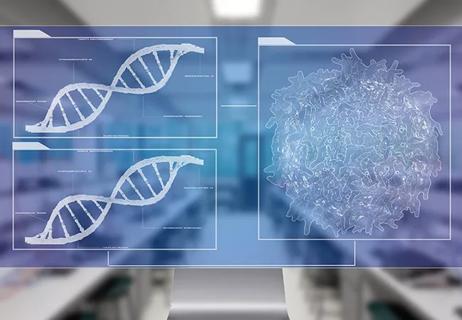How the new collaboration is improving patient outcomes

A young patient with focal segmental glomerulosclerosis (FSGS), a condition that can cause kidney failure, was being treated with a standard regimen of steroid and other immunosuppressive drugs. His mother had died from kidney failure after being on dialysis for years.
Advertisement
Cleveland Clinic is a non-profit academic medical center. Advertising on our site helps support our mission. We do not endorse non-Cleveland Clinic products or services. Policy
After a few months with no improvement, the patient came for an evaluation at Cleveland Clinic’s renal genetics clinic, a new collaboration of Glickman Urological & Kidney Institute and Cleveland Clinic’s Center for Personalized Genetic Healthcare. Genetic testing revealed that the patient’s FSGS was inherited, due to a mutation in one gene.
This diagnosis led to a markedly different approach to therapy. Steroids and other immunosuppressive drugs were discontinued as they would not work for inherited FSGS. Instead the patient was recruited into a clinical trial targeting the genetic form of FSGS with a novel small-molecule drug.
This patient is among 30% to have changes in the management of their kidney disease since the start of Cleveland Clinic’s Renal Genetics Program in October 2019. In addition, 58% of patients in the program have learned the genetic cause of their disease could also affect their family members.
“Nearly 400 genes — plus other chromosome anomalies — are associated with kidney disease,” says Xiangling Wang, MD, PhD, Director of Renal Genetics at Cleveland Clinic. “Today genetic testing is more affordable and is better directing kidney disease diagnosis and treatment.”
The most common conditions evaluated in the program include:
Advertisement
Although the demand is growing, there are still very few renal genetics programs in the U.S. Cleveland Clinic’s program, now with more than 140 patients, grew sevenfold in less than a year.
In addition to Dr. Wang, a double-trained medical geneticist and nephrologist, the program includes a team of experienced medical geneticists, nephrologists and genetic counselors. They see patients referred across the nation for:
“Genetic kidney disease centers are changing the practice of nephrology, making genetic testing and service more accessible to patients, as well as inspiring research,” says Dr. Wang.
The nascent program at Cleveland Clinic has been collaborating with national researchers to conduct clinical and basic studies to advance the understanding of mechanisms of genetic kidney disorders and develop targeted therapies.
“The ultimate aim of renal genetics is to deliver care tailored to individual patients,” says Dr. Wang. “With the rapid progress in research, I’m optimistic that genetically targeted therapy for inherited kidney disease will be a reality in the near future.”
Advertisement
That’s promising news to the growing number of patients diagnosed with genetic kidney disease, which Dr. Wang estimates affects 1% of the world population.
“Referral to a renal genetics clinic should be considered for all patients with chronic kidney disease of uncertain cause and a positive family history or early-onset kidney disease,” she says. “About 70% of children with chronic kidney disease have some genetic involvement.”
For more about the Renal Genetics Program, see my.clevelandclinic.org/renalgenetics.
Advertisement
Advertisement

Study identifies Ketorolac as a potential repurposable drug

The relationship between MTHFR variants and thrombosis risk is a complex issue, but current evidence points to no association between the most common variants and an elevated risk

One-time infusion of adenovirus-based therapy is designed to restore heart muscle function

Cleveland Clinic researchers receive $2 million grant from the National Institutes of Health

New Cleveland Clinic fellowship fosters expertise in the genetics of epilepsy

Integrates genetic and clinical data to distinguish from GEFS+ and milder epilepsies

First-of-kind study aims to enable prevention of brain disorders before symptoms appear

Advanced genomic research techniques show potential to treat a variety of conditions